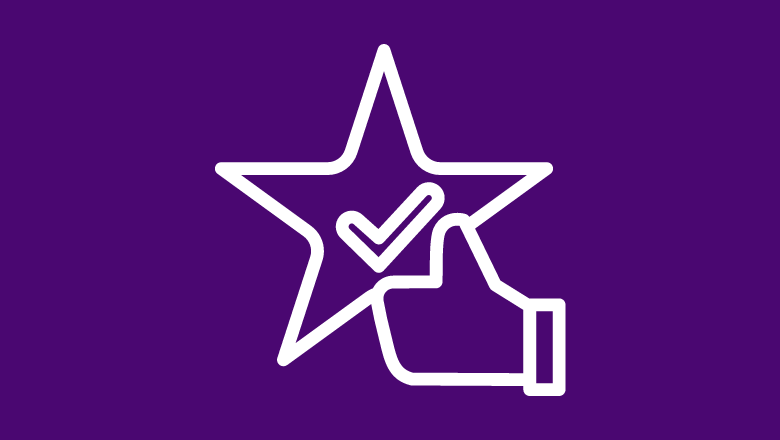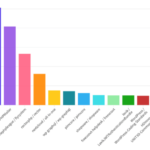
Agile Methodology in PHP Teams transforms traditional coding approaches, fostering adaptability, swift feedback loops, and ensuring robust, user-centric web applications with every iteration.
As the PHP development landscape continues to evolve, teams are constantly seeking efficient and effective methods for project management. One such approach that has gained popularity in recent years is the Agile methodology.
Agile has proven to be a game-changer for many software development teams, and for good reason. By breaking down development tasks into manageable, iterative stages, Agile can significantly improve project efficiency and collaboration.
When implemented in PHP teams, Agile methodology can lead to higher-quality code, faster development cycles, and increased teamwork.
In this article, we will explore the benefits of implementing Agile in PHP development and provide practical tips and best practices for adopting Agile methodology in your PHP team.
Let’s dive into the world of Agile and discover how it can transform your PHP development environment.
Understanding Agile Methodology
Agile methodology is a project management approach designed to deliver high-quality results in a flexible and collaborative manner. It is widely used in software development, including PHP development, due to its many benefits.
The core principles of Agile methodology include flexibility, constant collaboration with stakeholders, and a focus on delivering value in small increments.
This means that projects are broken down into smaller, more manageable pieces, and progress is regularly reviewed and adjusted based on feedback from all stakeholders.
Agile methodology differs from traditional development approaches like Waterfall in that it emphasizes adaptability and continuous improvement.
This makes it an ideal fit for PHP development, where requirements and priorities can change rapidly, and teams must be able to quickly respond to new challenges and demands.
Benefits of Agile Methodology in PHP Teams

Implementing Agile methodology in PHP teams can significantly boost efficiency and teamwork in PHP coding. By embracing Agile practices, PHP teams can expect increased productivity, faster development cycles, and higher quality code.
Here are some key benefits of using Agile methodology in PHP development:
- Improved collaboration: Agile methodology encourages frequent communication and collaboration among team members, helping to identify and address issues quickly.
- Increased flexibility: Agile development allows teams to quickly adapt to changing requirements and customer needs, leading to more efficient and effective development cycles.
- Better transparency: Agile practices provide clear visibility into project progress, work completed, and upcoming tasks, ensuring everyone is on the same page.
- Enhanced teamwork: Agile methodology fosters a sense of shared ownership and responsibility within the team, resulting in better teamwork, motivation, and engagement.
Overall, incorporating Agile practices in PHP development can lead to a more efficient and productive team that delivers high-quality code in a timely manner.
Implementing Agile in PHP Development
Implementing Agile methodology in PHP development can be a game-changer for project efficiency and success.
Here are some steps to follow to successfully implement Agile in PHP development:
Step 1: Educate team members on Agile principles
The first step to implementing Agile methodology in PHP development is to educate team members on the core principles of Agile, such as iterative development, continuous testing, and customer-centricity.
Make sure everyone understands the objectives of Agile and how it differs from traditional development approaches.
Step 2: Set up an Agile workflow
The next step is to set up an Agile workflow that aligns with your development process. This includes defining user stories, breaking them down into tasks, and prioritizing them based on business value. Create a product backlog and sprint backlog and ensure that your team has access to them.
Step 3: Incorporate Agile practices into your workflow
To implement Agile methodology in PHP development, incorporate Agile practices into your workflow. Conduct daily stand-ups to discuss progress and roadblocks, hold demos at the end of each sprint to showcase completed work, and conduct retrospectives to identify areas for improvement.
Step 4: Utilize Agile tools and technologies
Using Agile tools and technologies can significantly improve the efficiency and effectiveness of Agile methodology in PHP development. Implement collaboration tools like Jira, Confluence, and Slack to facilitate communication among team members. Deploy version control systems like Git to manage code changes and conduct continuous integration and delivery (CI/CD) to automate testing and deployment.
By following these steps, you can successfully implement Agile methodology in PHP development and reap the benefits of improved efficiency, collaboration, and code quality.
Key Agile Practices for PHP Teams
Implementing Agile methodology in PHP teams requires a set of specific practices and techniques. These practices encourage teamwork, collaboration, and iterative development, resulting in higher-quality code and faster development cycles.
Here are some key Agile practices that are particularly beneficial for PHP teams:
User Stories
User stories are descriptions of the desired functionality from the end-users’ perspective. They help PHP teams to focus on delivering what matters most to the customer. User stories promote collaboration between developers and stakeholders and enable the team to validate assumptions quickly, iterate on feedback, and stay focused on deliverables.
Sprints
Sprints are short iterative cycles in which development work is completed and assessed. PHP teams use sprints to plan, execute, review, and adapt their work. Sprints ensure that the development team focuses on the most relevant work items and provides a regular feedback loop to other stakeholders. Sprints enable the team to measure progress, prioritize tasks, and make adjustments based on emerging needs or feedback.
Daily Stand-Ups
A daily stand-up is a short meeting held by the PHP development team at the start of each day. During the meeting, each team member shares their progress, challenges, and plans for the day. Daily stand-ups enhance communication, collaboration, and accountability among the team members and help to identify and resolve issues early on.
Retrospectives
Retrospectives are periodic reviews of the development process and team performance. PHP teams use retrospectives to reflect on their work, identify areas for improvement, and make changes. Retrospectives encourage continuous improvement, enhance team communication, and foster a culture of learning and experimentation.
Continuous Integration
Continuous integration (CI) is a process where code changes are frequently integrated into the main codebase and tested automatically. CI ensures that new code changes are compatible with the existing codebase and that any issues are caught early on.
CI promotes collaboration between developers, improves code quality, and reduces the risk of errors and bugs.
Adopting these Agile practices can help PHP teams to work more efficiently, deliver higher-quality code, and improve collaboration and teamwork.
However, adopting Agile practices is not a one-size-fits-all solution, and teams need to experiment, iterate, and adjust their practices based on their specific needs and context.
Agile Tools for PHP Development
Implementing Agile methodology in PHP development projects requires the use of several tools and technologies that can help streamline the process and improve collaboration among team members. Below are some Agile tools that can be used in PHP development:
Project Management Software
Project management software can help PHP teams to keep track of project progress and ensure that everyone is aware of their assigned tasks. Tools such as Jira, Trello, Asana, and Basecamp are commonly used in Agile PHP development projects.
These tools allow teams to organize their work, set deadlines, and collaborate effectively.
Collaboration Platforms
Effective collaboration is essential in Agile PHP development projects, and the use of collaboration platforms can help achieve this goal. Tools such as Slack, Microsoft Teams, and Skype provide a way for team members to communicate in real-time, share files, and collaborate more efficiently.
Version Control Systems
Version control systems such as Git and SVN help Agile PHP teams to manage code changes and track versions. These tools allow developers to work on the same codebase simultaneously and merge their work seamlessly. They also provide a way to rollback to previous versions if necessary.
Continuous Integration and Deployment Tools
Continuous integration and deployment tools such as Jenkins, Travis CI, and CircleCI automate the development process, reducing the time required to build and test code changes. These tools also help to identify and fix issues quickly, ensuring that code quality is maintained throughout the project lifecycle.
Using these Agile tools and technologies can help PHP development teams to implement Agile methodology for PHP projects more effectively, boosting efficiency and collaboration, while maintaining high-quality code standards.
Common mistakes with implementing Agile Methodology in PHP Teams

1. Over-Engineering Solutions
Common Mistake: Expert PHP developers, with their vast knowledge, sometimes tend to over-complicate solutions, believing that a more complex solution is a better one.
Consequences:
- Decreased Productivity: Over-engineering can lead to longer development cycles.
- Maintenance Issues: Complex solutions can be harder to maintain and debug.
- Team Confusion: Other team members might find it challenging to understand or work with overly complex code.
Solutions:
- KISS Principle: Always remember the “Keep It Simple, Stupid” principle. The simplest solution is often the best.
- Regular Code Reviews: Encourage team members to review each other’s code, ensuring simplicity and clarity.
Expert Example: Instead of using intricate design patterns for a simple CRUD application, opt for straightforward procedural code or basic OOP.
// Over-engineered
class UserFactory {
public static function createUser() {
// complex logic
}
}
// Simplified
function createUser() {
// simple logic
}Key Takeaway: Complexity doesn’t always mean quality. Aim for simplicity and clarity in your code.
2. Neglecting Automated Testing
Common Mistake: Even expert developers sometimes skip writing tests, thinking their code is foolproof or due to time constraints.
Consequences:
- Undetected Bugs: Without tests, bugs can go unnoticed until they cause problems in production.
- Regression Issues: Future changes might break existing functionality without tests to catch these issues.
Solutions:
- Test-Driven Development (TDD): Write tests before writing the actual code. This ensures every piece of code has corresponding tests.
- Use PHP Testing Tools: Tools like PHPUnit can help automate the testing process.
Expert Quote: “Untested code is broken code.”
Example: For a function that adds two numbers, write a test to ensure it works as expected.
// Function
function add($a, $b) {
return $a + $b;
}
// Test
public function testAddFunction() {
$this->assertEquals(5, add(2, 3));
}Key Takeaway: Always prioritize testing. It ensures code reliability and saves time in the long run.
3. Not Adhering to Coding Standards
Common Mistake: Even seasoned PHP developers might sometimes write code that doesn’t adhere to established coding standards.
Consequences:
- Inconsistent Codebase: Different coding styles can make the codebase look messy and inconsistent.
- Collaboration Issues: It becomes challenging for other developers to read and understand the code.
Solutions:
- Use PHP_CodeSniffer: This tool checks your PHP code against predefined coding standards.
- Enforce Code Reviews: Ensure that every piece of code is reviewed by another team member before merging.
Table:
| Coding Standard | Bad Practice | Best Practice |
|---|---|---|
| Indentation | Mixing spaces & tabs | Use 4 spaces |
| Naming | $a, $b | $username, $email |
Key Takeaway: Consistency is key. Adhering to coding standards ensures a clean, consistent, and readable codebase.
By being aware of these common pitfalls and actively working to avoid them, expert PHP developers can ensure that they deliver high-quality, maintainable, and reliable code in an Agile environment.
Examples of Agile use cases in PHP Development
Several companies have successfully implemented Agile methodology in their PHP development teams, resulting in higher efficiency, collaboration, and better code quality. Here are some examples of Agile success stories in PHP development:
Example 1: Company X
Company X, a leading PHP development firm, decided to implement Agile methodology to improve their development process. They started by conducting team training and establishing a clear project management system using Agile principles.
The team also embraced continuous integration, daily stand-ups, and sprint-based development.
As a result of these changes, Company X saw a significant increase in efficiency, with faster development cycles and fewer bugs in the code. The team also reported improved collaboration and communication, resulting in better project outcomes and a more satisfied client base.
Example 2: Company Y
Company Y, a growing startup in the PHP development space, faced several challenges in their development process, including slow delivery times, poor communication, and lack of teamwork.
To tackle these issues, they adopted Agile methodology, focusing on establishing clear communication channels, conducting daily stand-ups, and embracing sprint-based development.
As a result of these changes, Company Y saw a significant increase in efficiency, with faster delivery times and improved code quality. The team also reported better collaboration and communication, resulting in a more engaged and motivated team.
Example 3: Company Z
Company Z, a large-scale PHP development company, implemented Agile methodology to tackle some of the persistent issues in their development process, including low team morale, slow delivery times, and lack of collaboration.
The team conducted Agile training sessions, established a clear project management system, and embraced sprint-based development and continuous integration.
As a result of these changes, Company Z saw a remarkable increase in efficiency, with faster delivery times and higher-quality code. The team also reported better collaboration and communication, resulting in a more motivated and satisfied team.
These examples demonstrate the potential of Agile methodology to improve efficiency, collaboration, and code quality in PHP development teams. By embracing Agile principles and practices, PHP development teams can achieve enhanced productivity and success.
Best Practices for Agile PHP Teams

Agile methodology is a powerful tool for boosting efficiency and collaboration in PHP development teams. But to reap the full benefits, it’s essential to follow best practices for implementing and maintaining Agile practices.
Below are some tips for PHP Agile practices that can help your team get the most out of Agile methodology:
1. Embrace user stories
User stories are a crucial part of Agile development, helping to ensure that the project is always focused on delivering value to the end-user.
By breaking down development tasks into user stories, you can prioritize work based on what matters most to users, which ultimately results in higher-quality, more user-centric code.
2. Conduct regular retrospectives
In Agile methodology, retrospective meetings are essential for continuously improving and refining the development process. Ensure that your team schedules regular retrospectives to reflect on what worked well, what didn’t, and identify opportunities for improvement.
This practice will help your team stay focused on delivering high-quality code while also fostering a culture of open communication and collaboration.
3. Establish a strong project management framework
One of the cornerstones of Agile development is strong project management. Ensure that your team is using appropriate project management software to track progress, manage tasks and deadlines, and communicate effectively with project stakeholders.
This practice will help ensure that everyone is on the same page and working towards the same goal.
4. Prioritize teamwork and communication
Agile development requires a high level of teamwork and collaboration. Ensure that your team is communicating openly and frequently, whether through daily stand-ups, regular meetings, or other channels.
Encourage team members to share their ideas and perspectives, and prioritize building a supportive and positive team culture.
5. Practice continuous integration and testing
Continuous integration and testing are essential for ensuring that code changes are integrated into the project smoothly and quickly.
Encourage your team to follow a continuous integration and testing process, using appropriate tools and techniques to ensure that code changes are rigorously tested before being deployed.
By following these PHP Agile practices, your team can unlock the full potential of Agile methodology, resulting in faster development cycles, higher-quality code, and a more productive and collaborative team environment.
Conclusion: Unlocking the Potential of Agile PHP Teams
Agile Methodology in PHP Teams emphasizes collaboration and responsiveness. By embracing change, they deliver value faster, meeting client needs with precision and efficiency.
Implementing Agile methodology in PHP teams can unlock their potential, and boost their efficiency to unprecedented levels. Agile practices are essential for PHP development projects that require flexibility, collaboration, and iterative progress.
By embracing Agile principles, PHP developers can work more efficiently, communicate more effectively, and produce higher-quality code.
Agile practices such as user stories, sprints, daily stand-ups, retrospectives, and continuous integration can enhance team collaboration and productivity while reducing development time.
However, it’s important to remember that implementing Agile methodology in PHP development can come with its challenges.
It’s essential to establish effective communication channels, use appropriate project management software, and resolve conflicts in a timely manner to ensure that the Agile workflow remains smooth and efficient.
5 FAQs about choosing “Agile Methodology in PHP Teams

Agile Methodology in PHP Teams bridges the gap between developers and stakeholders. Through iterative cycles, they co-create solutions, ensuring software excellence and stakeholder satisfaction.
1. Why should PHP teams adopt Agile methodology?
Answer: Agile methodology promotes adaptive planning, evolutionary development, early delivery, and continuous improvement. For PHP teams, this means faster feedback, better code quality, and more frequent releases.
Key Points:
- Iterative Development: PHP teams can break down complex projects into smaller, manageable tasks.
- Collaboration: Agile promotes close collaboration between developers, testers, and stakeholders.
Example: A PHP team working on an e-commerce website can release a basic version of the site first, gather feedback, and then iteratively add features like payment gateways, product recommendations, etc.
Pro Tip: Use tools like JIRA or Trello to manage your PHP project’s Agile workflow.
Code Sample:
// Initial release: Basic product listing
function listProducts() {
// code to list products
}
// Next iteration: Add product search feature
function searchProducts($query) {
// code to search products based on the query
}2. How can PHP teams ensure continuous integration in an Agile environment?
Answer: Continuous Integration (CI) ensures that code changes are automatically tested and integrated into the existing codebase frequently. PHP teams can use tools like Jenkins or Travis CI for this purpose.
Key Points:
- Automated Testing: Write unit tests for your PHP code to ensure functionality.
- Frequent Commits: Encourage team members to commit code frequently to detect issues early.
Example: Every time a PHP developer pushes code to the repository, the CI tool runs automated tests to ensure there are no breaking changes.
Pro Tip: Integrate static code analysis tools like PHP_CodeSniffer to maintain coding standards.
Code Sample:
// Sample PHPUnit test
class ProductTest extends PHPUnit_Framework_TestCase {
public function testProductCreation() {
$product = new Product("Sample");
$this->assertEquals("Sample", $product->getName());
}
}3. How do Agile methodologies help in managing changing requirements in PHP projects?
Answer: Agile methodologies, like Scrum or Kanban, allow PHP teams to be flexible and adapt to changing requirements by prioritizing tasks and working in short iterations.
Key Points:
- Backlog Prioritization: Keep a prioritized list of tasks and adjust as requirements change.
- Short Iterations: Work in sprints (typically 2-4 weeks) to accommodate changes.
Example: If a client wants to add a new feature to their PHP web application, the team can quickly adjust their sprint backlog to accommodate this change.
Pro Tip: Regularly conduct sprint reviews and retrospectives to gather feedback and improve.
Code Sample:
// Initial requirement: User registration
function registerUser($userData) {
// registration code
}
// Changed requirement: Add email verification
function sendVerificationEmail($userEmail) {
// email sending code
}4. How can PHP teams maintain code quality in an Agile environment?
Answer: By incorporating practices like pair programming, code reviews, and automated testing, PHP teams can ensure high code quality even in fast-paced Agile environments.
Key Points:
- Pair Programming: Two developers work together, with one writing code and the other reviewing it.
- Code Reviews: Regularly review code to catch issues and maintain standards.
Example: Before merging a new feature into the main branch, a senior PHP developer reviews the code to ensure it meets the team’s quality standards.
Pro Tip: Use tools like SonarQube to continuously inspect the code quality of PHP projects.
Code Sample:
// Before code review
function calculateTotal($prices) {
$total = 0;
foreach($prices as $price) {
$total += $price;
}
}
// After code review (improved version)
function calculateTotal(array $prices): float {
return array_sum($prices);
}5. How can Agile methodologies improve collaboration in PHP teams?
Answer: Agile methodologies emphasize regular communication, feedback, and collaboration among team members, stakeholders, and clients. This ensures everyone is aligned and working towards a common goal.
Key Points:
- Daily Stand-ups: Short daily meetings where team members discuss what they did, what they plan to do, and any blockers.
- Collaborative Tools: Use tools like Slack or Microsoft Teams for communication.
Example: A PHP developer encounters an issue with a third-party API. During the daily stand-up, they discuss the problem, and another team member offers a solution based on their experience.
Pro Tip: Encourage open communication. Create a safe environment where team members feel comfortable sharing ideas and challenges.
Code Sample:
// Collaborative code documentation
/**
* Fetches data from third-party API.
* @param string $endpoint API endpoint.
* @return array API response data.
* @throws ApiException If API call fails.
*
* Note: If you face issue XYZ with this API, consider using alternative method ABC.
*/
function fetchDataFromAPI($endpoint) {
// API fetching code
}
Michael is an accomplished technical author renowned for his expertise in scientific computer science. With a distinguished career as a development manager at Yahoo, Walmart, and FedEx, he has demonstrated exceptional leadership and technical acumen in delivering successful projects.
With an unwavering interest in PHP development, Michael has been at the forefront of this powerful programming language for the past 22 years. His passion for PHP has driven him to explore its vast potential and harness its capabilities to create innovative and scalable web solutions. Michael’s expertise in PHP development encompasses various frameworks, libraries, and best practices, making him a trusted authority in the field.



![How to use Cursor AI to write PHP Code[Example]](https://hirephpdeveloper.dev/wp-content/uploads/2025/03/How-to-use-Cursor-AI-to-write-PHP-Code-1-150x150.png)



